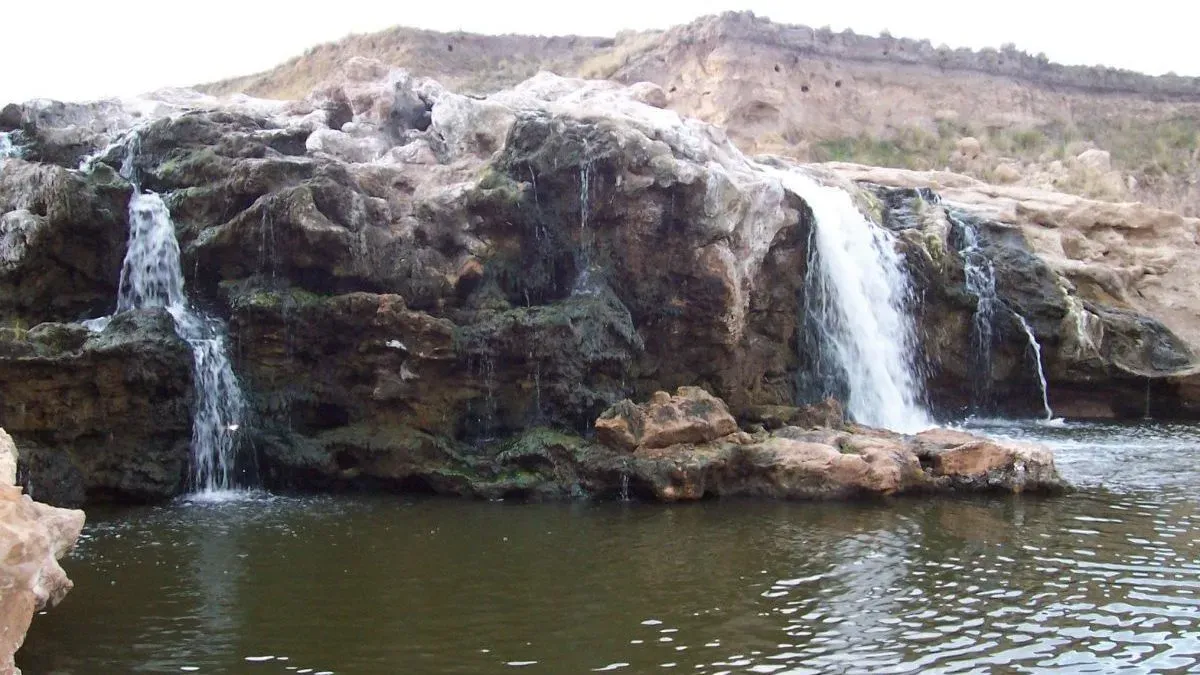Image: OÖN

Image: City of Leonding
One thing became clear on Monday evening in the Kürnberghalle at the information event about the well water contaminated with the industrial chemicals PFAS in parts of Leonding and Pasching: There will be no simple and, above all, quick solutions.
As reported, the problem became known shortly before Christmas. In Leonding, the Staudach, Jetzing and Felling districts as well as the fountain systems of the Harterfeld I and II water cooperatives are affected.
Highly resistant fabric group
At the start of the information event, which was supposed to last more than three hours, the topic was the properties and nature of the detected per- and polyfluorinated alkyl substances, PFAS for short.
“PFAS are a highly resistant group of substances that are difficult to degrade. It is not expected that this will be a short-term problem, we will have to deal with it in the longer term, possibly several years”, explained Maria Wiesauer from the drinking water supervisory authority, who is also the PFAS officer for the state of Upper Austria. Further cases of contamination, such as in Styria or in Salzburg, would show this impressively.
Depending on the definition, said group of industrial chemicals 5000 includes up to six million individual substances, the use of some of these substances is now banned. PFAS are found, for example, in the coating of textiles, in cosmetics or in fire-fighting foams, and 20 of them were classified as questionable with regard to drinking water.

Image: City of Leonding
Environment Councilor Stefan Kaineder (Greens) called the PFAS on Monday as “eternal chemical”, he referred to studies that would show that these are harmful above a certain concentration. Rapid (political) action is advisable.
There is still no official drinking water limit value for perfluorinated and polyfluorinated alkyl substances in Austria. With an EU drinking water directive, this – probably defined at 0.10 µg/l – should become reality by 2026 at the latest. A decision by the federal government is required to implement this directive.
There are currently no suitable treatment systems for the affected home well owners and members of the cooperatives (a total of around 500 people), it was also said on Monday. The only way out is to connect to the public drinking water network of the city of Leonding, i.e. that of Linz AG.
debate about costs
However, this in turn comes with some costs. Around 80,000 euros would have to be invested to develop the supply area of the two Harterfeld I and II water cooperatives, and around 1.2 million euros for those of the Jetzing, Felling and Staudach districts. The additional fees due and the obligation to connect in the event of an expansion of the municipal water supply also caused discussions among those present.
Above all, those responsible for the water cooperatives campaigned for financial support. They would like the municipality to waive the connection fee of several thousand euros per household for its members.
“I can well understand the individual concern”, said Mayor Sabine Naderer-Jelinek (SP). The decision as to whether and to what extent there will be financial support is up to the municipal council. “We try. However, the fact that there is no limit value for PFAS does not make things any easier”said the mayor.
Drink no, shower yes
Some participants were very unsure about how to deal with the contaminated drinking water. At the information evening, the call was again made not to consume the affected water and not to use it for watering vegetable plants and the like. Medical officer Thomas Edtstadler urgently warned of the pathogenic consequences of long-term consumption. However, the water can be used for personal hygiene, i.e. for showering, he said.
However, it is still unclear how the drinking water was contaminated. Further sampling and investigations are ongoing. A possible trigger, as in Salzburg, could be leaking extinguishing foam.
In any case, drinking water will continue to be provided free of charge for the affected residents, Naderer-Jelinek confirmed. This is currently happening in cooperation with the volunteer fire brigade Hart.
Source: Nachrichten




